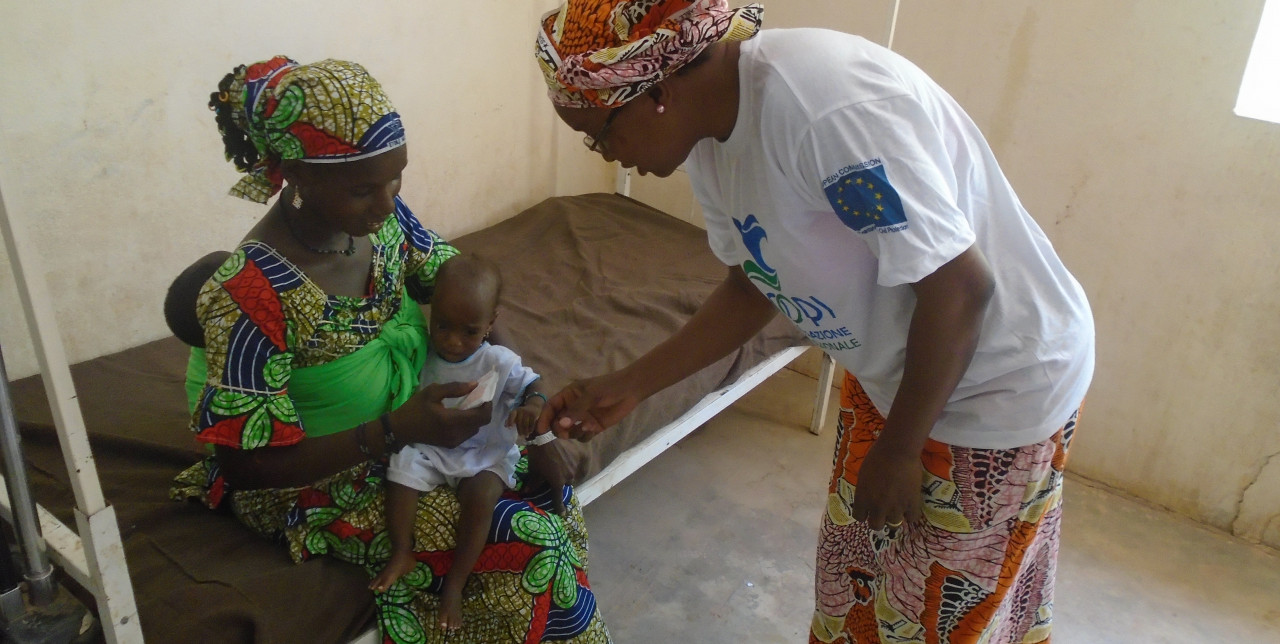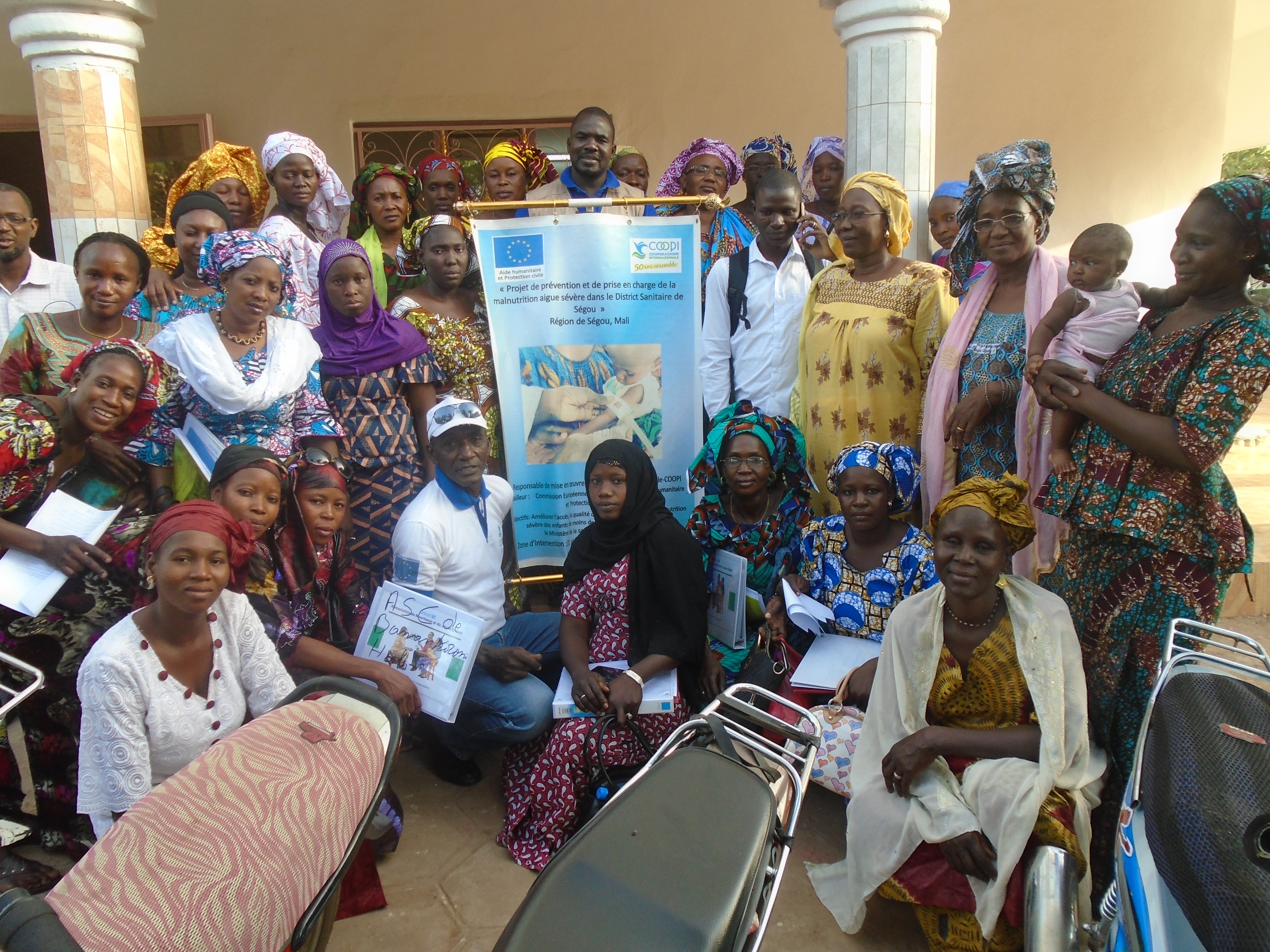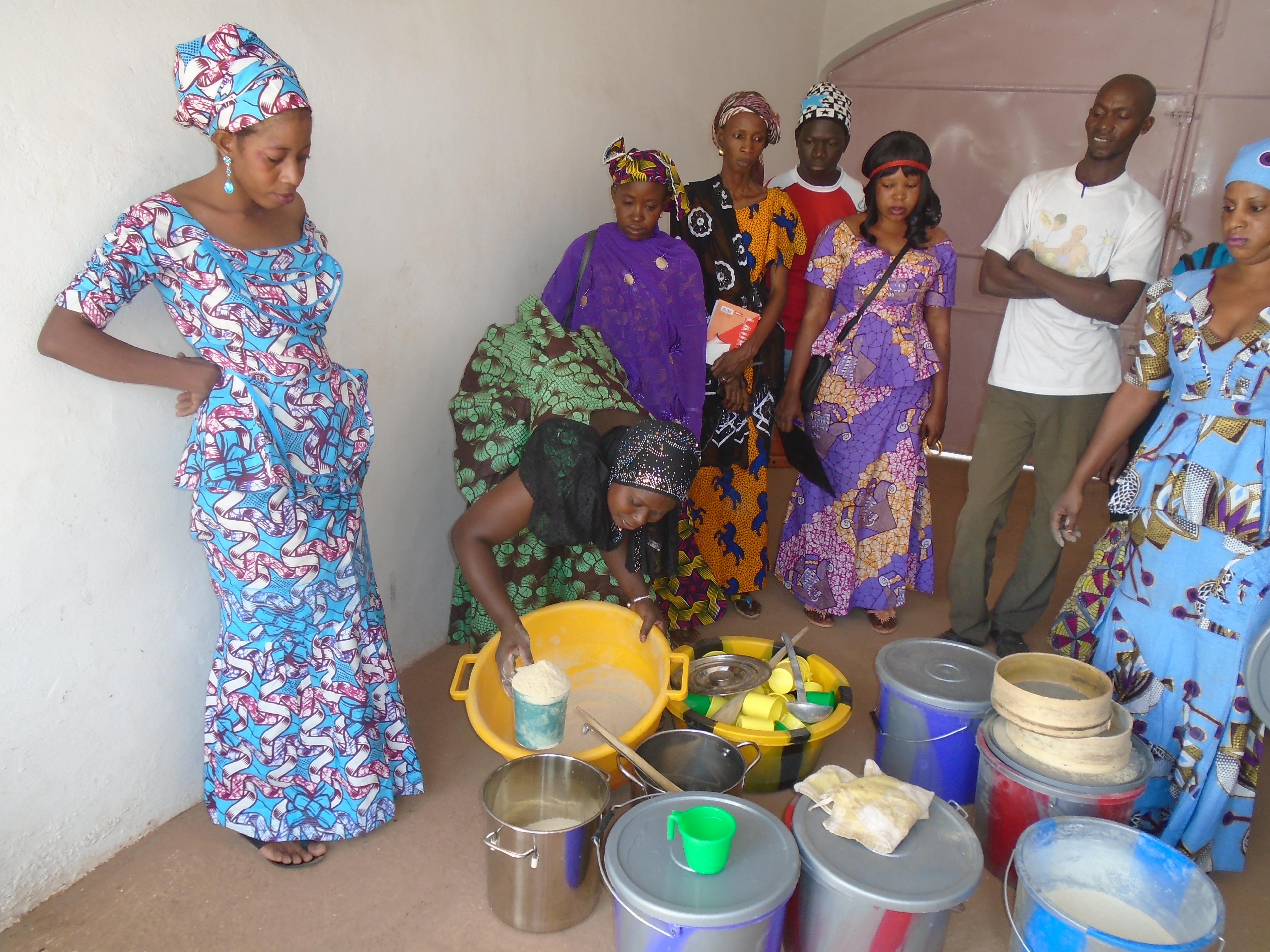25-06-2018 | di COOPI
Mali: 26,000 children cured from malnutrition
Since 2013, COOPI has been working in Mali to prevent and cure Severe Acute Malnutrition (SAM) in children between 0 and 5 years of age, thanks to the funding from the EU Humanitarian Aid (ECHO) in Ségou sanitary district.
On February 1st 2018, the sixth phase of the project was launched in 31 Health Areas of the region. Its purpose is to strengthen the results achieved in previous phases, to ensure the sustainability of the activities and to carry out an exit strategy while improving the prevention of SAM and the access to high-quality care for SAM with or without complications in children under five years of age.
Since 2013, thanks to the financial support of ECHO, 26,455 children between 6 and 59 months of age were admitted for treatment. 26,064 of them were cured completely, including 2738 cases affected by serious complications.
During this new project phase, COOPI will need to strengthen the support it provides to the integration of the activities carried out previously. It will also help health authorities, local district ones and local communities to be in charge again, so that, in the future, they will be able to manage the screening, the taking charge and the treatment of child malnutrition.
Work organization of the project is based on the participation of Community Health Agents, of Relais Communautaires and of Community Agents- all of whom are themselves considered to be indirect beneficiaries of these activities; so is the health staff involved both in districts and in Community Health Centres (CESCOM). Trainings, supervisions and the direct presence of COOPI operators are aimed at strengthening the technical and operative skills of workers in both healthcare and local communities.
In 2018, COOPI will keep providing a cohesive and effective support to the integration of healthcare infrastructures and to fight malnutrition in healthcare areas. It will also provide support to awareness activities for the prevention of and the taking charge of malnutrition, it and a more accurate treatment in areas highly affected by it. Together with healthcare services and local communities, the COOPI staff will be able to screen about 106,000 children (between 6 and 59 months of age), with the expectation of admitting to the program 5,206 childrem affected by SAM (and 781 expected cases of malnutrition with complications) during the 12-month carrying out of project activities.
The COOPI staff will carry on awareness-related activities for 17,756 pregnant and lactating women about the promotion of good practices for infant and young child feeding, food hygiene and the early identification of malnutrition symptoms. Technical trainings will also be carried out, both for the healthcare staff of Community Health Centres and for the actors of local communities (Relais Communautaires and Community Agents), who help spreading awareness in local communities.




 Mali
Mali

